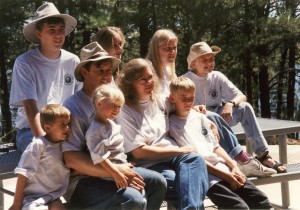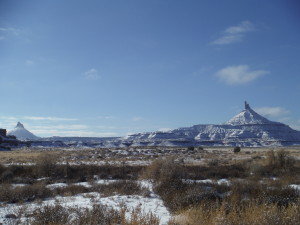Plato reports a tale that in the beginning people had four arms and four legs and two faces. In fear of their power Zeus divided them in half to create people as we know them today. As a result each half spends its life missing it’s other half, missing something integral that is required to make them whole. (The Symposium) There is a word in German that tries to name this sense of intense, lifelong longing for something nearly intangible. Sehnsucht. (Pronounced something like ZenZookt)
*The caveat. I don’t speak German. I don’t know Welsh or Galician or Portuguese and I’m not a linguist or even a serious scholar of English. I approach this as a soul.
The idea is that sometimes we have a longing, an anxious yearning for something. It might be a longing for our missing half, like the longing that a sailor feels for the person he left at port many months ago, or the longing that Legolas feels for the sea, or the longing that a starving person has for food. It’s not hunger. It’s not desire. It’s deeper. It’s buried in your fiber. It gives you dreams at night and comes to mind as you stare into the middle distance. The word was important to C. S. Lewis who used it to talk about a desire every soul feels to return to the God that created it. Kind of a sort of homesickness for heaven.
This led me to another word. Hiraeth. This is a Welsh word. I first heard it sitting in a concert halls years ago listening to a Welsh choir. This word describes the longing that a true Welshmen feels for the land of Wales. Not as it is, but as it once was. Sort of a longing for the home that you grew up in before your eyes opened to the troubles and faults of life. In this case it’s a home that you can never really return to because the place (or the feeling of the place) doesn’t exist anymore.
Saudade is a side step into Portuguese. This word adds the concept of melancholy mixed in with the desire. You are filled with sadness because of the longing for the lost subject and this sadness is heightened by a repressed acknowledgement that the thing you miss might never be regained. Perhaps that person is lost (or dead) and may never be found again. Or the marching cadence of progress has changed the world you seek removing forever its peaceful simplicity.
In a sense this is nostalgia dosed with the sadness and fear that of one that can’t go back. A longing search that may never discover its aim. There are dozens of other words in other languages that describe this sense. They are all a little different and are full of nuances of context and connotations from usage within each language.
Before I was born Henry B. Eyring spoke at BYU about his childhood. He said that now and then in his early schooling a member of the class would read a scripture to start the day. He would always read 1 Corinthians 13 about charity. He said that he would feel a certain way each time he read that scripture, a sort of tug or intense desire to live in that world. He didn’t have a word for it, or even a way to describe it until he was older. Then he connected the longing with home and family and the peaceful harmony that a home saturated with charity must be filled by. It wasn’t the home he grew up in. It was the home he might one day have but the ideal home that he wanted to create. He life has been motivated by the longing to be worthy and able to have that home.
In my months at scout camp homesickness was something we watched for. Generally boys cannot confess to being homesick. It just isn’t done. Usually it becomes physical. The boys come up to the leader and complain that they don’t feel well, sort of a nausea or tummy ache. They are grumpy and will ask to call home and maybe even to go home. The trick is not to disagree with them but to give empathy to their sorrow. Acknowledge their complaint and get them involved. We tried very hard not to let them call home unless it got pretty bad. Instead we would encourage them to play games with the other boys or give them a special project (you can get a lot of dishes done this way). As they get swept up with the excitement of camp they will forget the home sickness and the tummy ache will disappear. Until they get into a fight with another boy and they take a moment to be alone. Then it comes back. We fight pretty hard to keep them up there as long as they can.
I felt it once myself. I was seventeen and joined up with a 40-year-old and an 81-year-old whom I had never met for a three week trip across the country to the national jamboree. I thought I was past homesickness. I had spent months away from home up at camp by this time and never had problems. I made friends in the staff I was on and largely enjoyed the travels (learning some valuable budgeting principles along the way). It wasn’t until we had wrapped up the camp and started the long drive back that I acknowledge the missing I felt for my home. I was so lost in the lowlands of the east. The trees enclosed around me as thick as the Virginia summer. I remember keenly the thrill and peace I felt when we crossed the Utah State line somewhere around four corners and I could once more see the wide open spaces of desert Utah. In retrospect I have no idea how Southeastern Utah differs from Northwestern New Mexico topographically…but I could feel the difference. My yearning was quenched by it.
My sense of home has only grown more convoluted since then, as I suppose it does for most people. All of my childhood memories were centered around a specific house in Taylorsville, Utah. But then there was a lake in the high Uinta’s where I spent three summers. Always a chunk of my heart will be nestled in that bed of stone. Similar feelings exist to various extents for a certain dormitory in college, the worn down apartments of San Bernardino, a palace in Jerusalem, and a few apartments in Provo.
When I go back to those places I feel that same thing I did crossing the state line at age seventeen.
Home.





On 4 July 1975, I entered the first area of my mission: Emporia, Kansas. It was a small town relative to my upbringing in Los Angeles. Because it was the evening of the 4th of July, my trainer determined that we would not proselyte. As the late summer sun settled we sat in our car on the closest thing to a mountain top that was available to us. It was the top of an arched bridge. In Kansas, you can see very far with just a little bit of height.
As we didn’t know each other, there wasn’t much to say. Elder Bair pulled out his harmonica and started playing melancholy songs. I remember he played, “A Poor Wayfaring Man of Grief”. As I watched the sun set, I struggled to see the distant mountains of California. There were no mountains in any direction. The sun and the moon were in the wrong place in the sky. I did not expect that I would notice, but it was just wrong. I did not know a soul within 1400 miles. I would not see home for 2 years…
Then a revelation came. I would never see that home again. It would be different when I returned. (As it turned out, my parents moved while I was gone, so I never spent another night in the only home I could remember.) The only real home was with Heavenly Father. He was within reach. I could pray to Him and He would hear me just like He did in LA. Someday, I would return. And that would be the only way to go Home.
Reminds me of this: https://www.lds.org/ensign/2006/03/filling-the-void?lang=eng